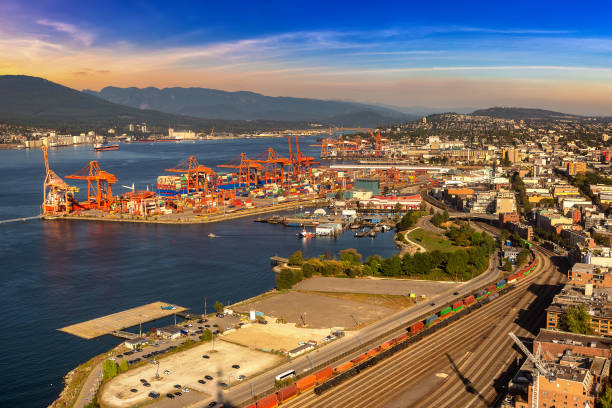
Buy Now, Pay Later: Now in Car Repairs?
April 13, 2022
Croydon London Borough Council (Appellant) v Kalonga (Respondent)
April 14, 2022Article by Ralitsa Stancheva
Freeports are a topic that does not get much media attention. Yet, with projections of between 86,000 and 150,000 new jobs possibly created and an annual increase in trade of £12 billion, their importance for businesses and the overall British economy should not be overlooked. This article offers a summary of the key points to be informed about to date.
What is the role of freeports in the economy?
Freeports serve as accelerators of economic activity as they help businesses save time, reduce costs, and ultimately, remain competitive when engaging in international trade. They are designed as low or no tax, customs and excise “islands” within the national tax system, operating under a set of special rules and economic incentives. On their territory, companies can conduct certain intermediate steps of cross-border commercial transactions, such as warehousing and added-value manufacturing, without incurring significant additional costs and undergoing complex bureaucratic procedures. In most cases, goods are not subject to the usual custom checks on entering the freeport, and tariffs and taxes would either be cancelled altogether or would be due only after the goods have been re-exported or sold on the UK market.
What is the current government’s policy on freeports?
The Government has positioned freeports as hubs for global trade and investment in innovation, infrastructure, and local and regional job creation. It budgeted some £200 million of seed capital funding for the successful bidders. In their 2019 Manifesto, the Conservative Party committed to creating up to ten freeports in all four countries in the UK. Last March, eight successful freeport bidders were announced: East Midlands Airport, Felixstowe & Harwich, Humber, Liverpool City Region, Plymouth & South Devon, Solent, Teesside and Thames. As of the end of 2021, the Teesside and Thames freeports are already operating.
As part of the Government’s policy to increase the attractiveness of the new locations, freeports in England will capture businesses within a radius of 45 km and will be enjoying benefits related to customs, tax, planning, infrastructure, and innovation. They will be eligible for up to £25 million of seed capital funding to modernise their infrastructure and will enjoy a number of tax reliefs and allowances, for example on capital, buildings, and employer national insurance contributions. This is a significant development because the only benefits offered by the seven freeports operating in Britain between 1984 and 2012 were related to customs, but not to tax or other policy areas. Between 2012 and 2019, the Government’s focus has shifted towards “enterprise zones” offering tax and planning permission incentives, but no customs relief.
How does the picture look today?
The Office for Budget Responsibility (OBR) estimates that the annual costs of running freeports will amount to approximately £50 million from 2022 onwards. This is largely due to the reliefs related to the employer’s national insurance contributions and the applicable business rates, i.e. property taxes on commercial premises.
Yet, the power of public authorities to subsidise freeport development is not unlimited. It is confined by the national subsidy control regime and the UK’s international subsidy control obligations, as part of the country’s membership in the World Trade Organisation (WTO) and under the Trade and Co-operation Agreement (TCA) with the EU. To formalise the legal framework and the requirements public authorities must comply with when granting subsidies, including in relation to freeports, the Government introduced a Subsidy Control Bill in June 2021.
Notably, the Bill makes no specific provisions on freeports. Instead, it proposes a framework under which the Government could issue some specific guidance. The Bill bans subsidies tied to relocation to other parts of the UK and seeks to introduce some transparency requirements for subsidies above £315,000 and subsidies to services of public economic interest above £14.5 million. These requirements also include non-binding reporting on subsidies of ‘interest’, ‘particular interest’ and those called in by the Secretary of State to the Competition and Markets Authority. As of the day of writing this article, the Bill has successfully passed the third readings in both Houses and awaits its consideration of amendments before receiving Royal Assent.
As part of its innovation-driven nature, the new freeports model does not leave out the net-zero goals altogether. In February, it was announced that two green freeports will be established in Scotland with up to £52 million in seed funding provided by the UK Government and plans for them to become operational by next spring. Announcements of freeports in Wales and North Ireland are yet to come.
Why is not everyone happy about the freeports?
Criticism against freeports is centred around two major points. The first point is that the freeports’ “light regime” could be used for money laundering and tax evasion. In light of the latest international developments, the possibility of Russian oligarchs avoiding asset-freezing sanctions by storing valuable assets, such as art collections, in freeports has attracted some significant attention. The second point relates to their overall effect on the size of the economy. Freeports are seen by some merely as means for displacing businesses across the UK, without necessarily contributing to any actual growth of the national economy.
While this criticism may hold some truth, it seems to discard the freeports’ value for dismantling trade barriers, boosting economic activity and, more importantly, its decentralisation by creating more jobs and better infrastructure in previously deprived areas in the UK. With 95% of the UK’s international trade being facilitated by ports, the British Ports Association has even been actively lobbying for allowing more than 10 potential freeports.
Freeports can enable both regions and industries to benefit. The availability of tax and customs incentives could lead to more companies being founded in the peripheral areas of the country. For example, in industries such as oil and gas, manufacturing, automotive, life sciences, IT, professional services and construction. With some industries heavily dependent on just-in-time supplies of materials, such as the automotive industry, being hit by supply chain shortages due to COVID and other factors, the possibility of ensuring business continuity while keeping warehousing costs low is welcomed by many.
What can businesses do to make the most of the freeport regime?
Without a doubt, many businesses of all sizes and trades see a potential for growth in the new freeport regime. Such business would therefore benefit from evaluating eligibility for tax and other applicable incentives, the locations that will best allow them to merge existing and future operations, their overall know-how and readiness to fulfil customs requirements.





